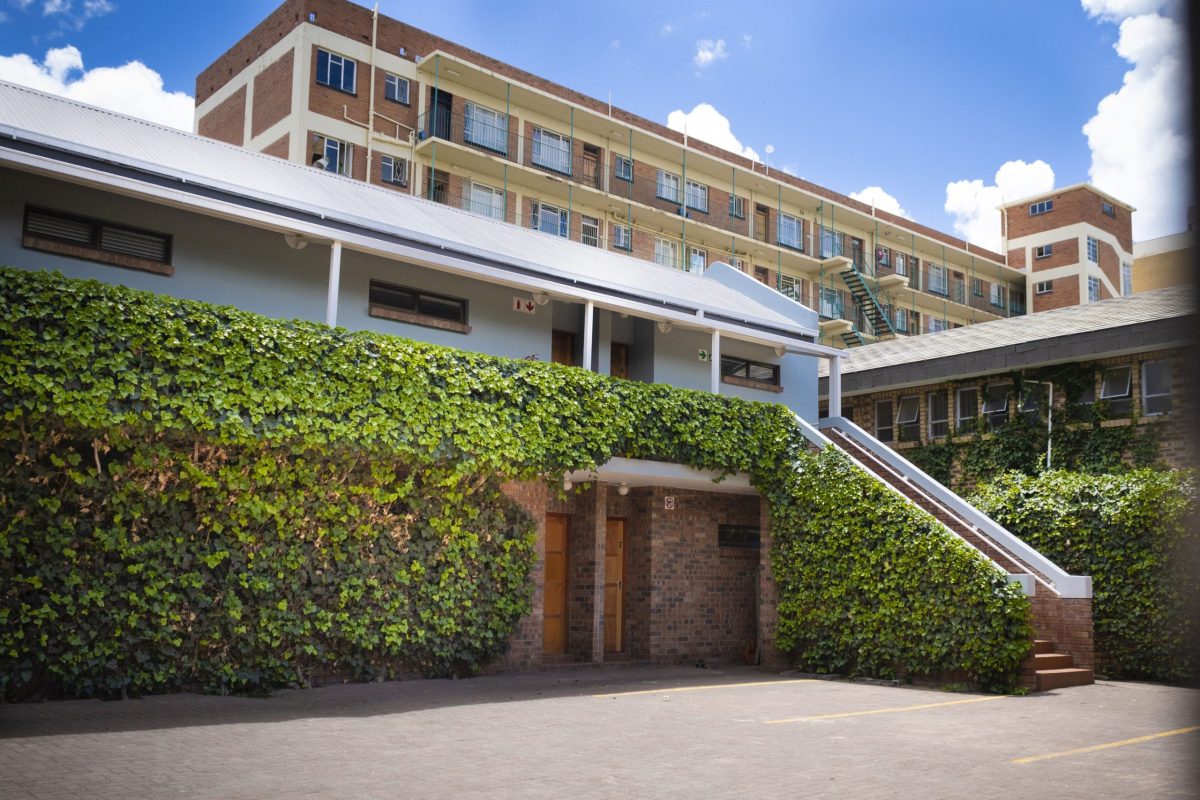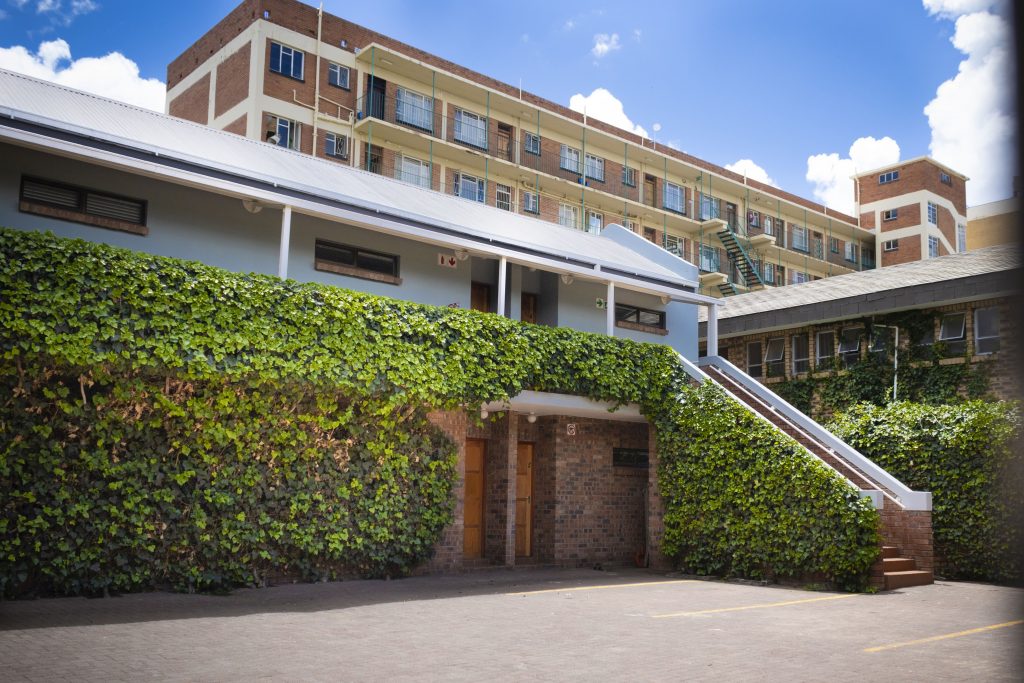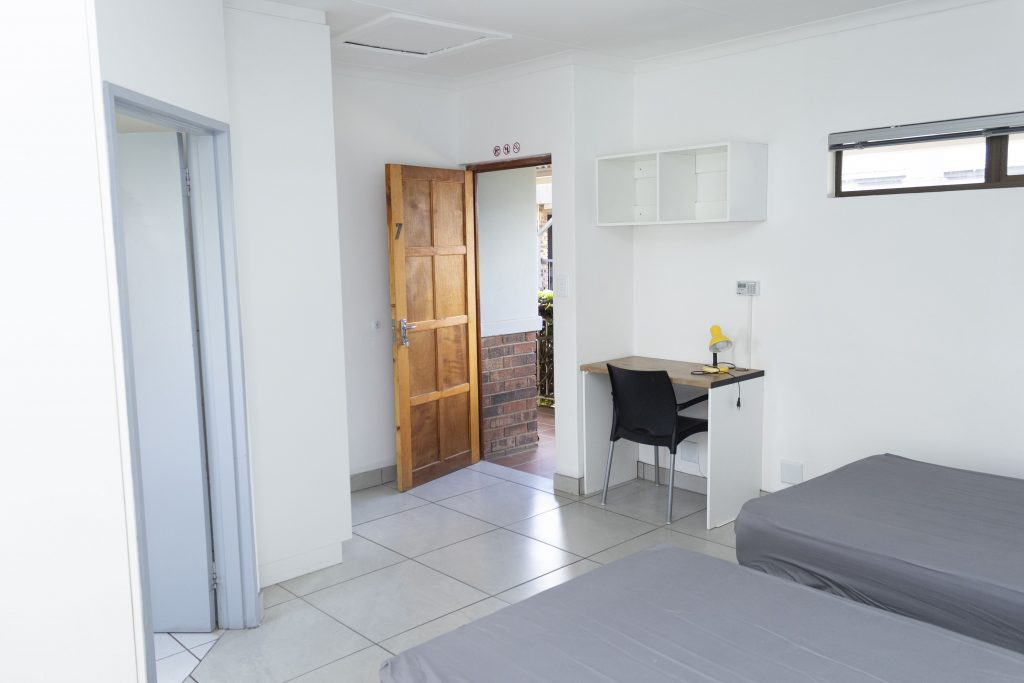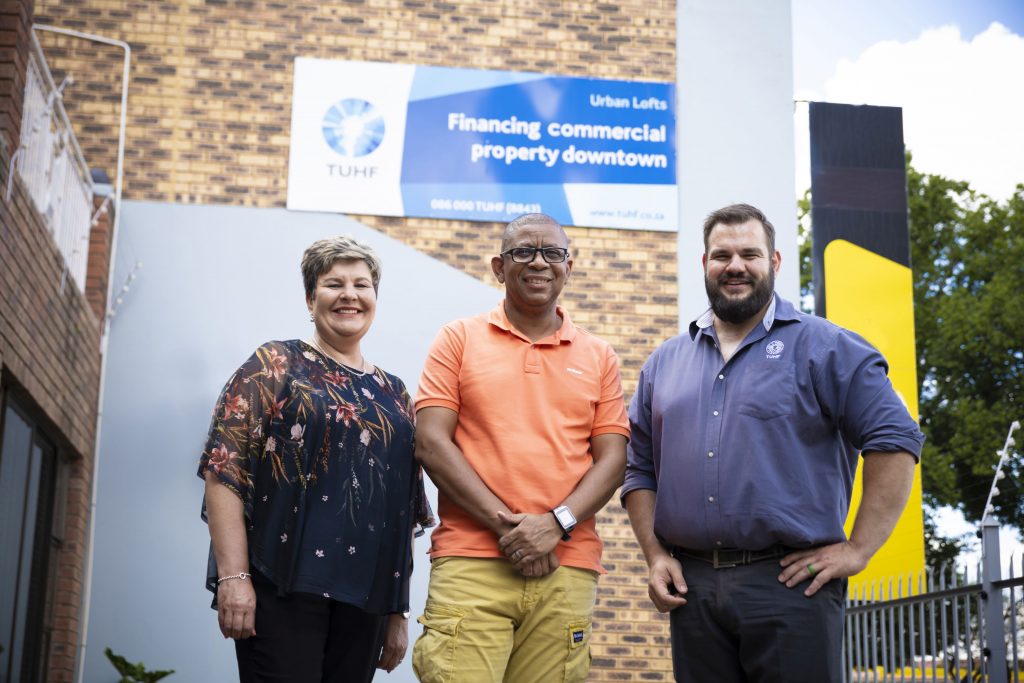
Located in Westdene, Bloemfontein, Steven Modise has refurbished and converted a badly vandalised guest house into quality accommodation for students attending the University of the Free State (UFS).
Modise acquired the building in late 2019. Located less than 2km from the UFS campus, it was ideal for student accommodation. The refurbishment had to be completed within three months to ensure it would be available for students to move in when campus opened in February 2020. Transfer went through in mid-December 2019 and by mid-January Urban Lofts was ready to open its doors.
“The place was in really bad shape when I bought it,” Modise says. “We put in new windows and new geysers, repaired the badly damaged plumbing and electricals, retiled and painted the roof, put up new blinds and installed the necessary appliances in the kitchen.”
Urban Lofts now boasts 18 sharing units of 26m2 each, all with ensuite bathrooms. The building includes a common area of 65m2 that holds a kitchen for students to prepare meals, and offers space to eat together, watch TV, do laundry and get to know each other. “It’s also a comfortable space for entertaining family and friends,” Modise says. “But doesn’t include pool tables or anything that could turn it into a hang-out for students that aren’t tenants. It’s about offering a safe and comfortable environment to relax and build friendships, but also to learn and do well at university.”
Modise takes real pride in Urban Lofts and the safe, well-equipped environment it creates for students to study and have a great student experience. “I want to be proud of what I do,” he says. “If I offer a product, I want it to be of good quality. My clients are the most important and I make sure to give them a good quality product at an affordable price.”
The building was fully tenanted for the 2020 academic year. Not long after, the first COVID-19 lockdown was announced in March. “Though some of our students did go back home when lockdown was announced, most opted to come back in June,” Modise says. “Urban Lofts offers Wi-Fi, as well as safe, quiet space to study and attend virtual lectures. Many of our students couldn’t access these things at home, so it made sense for them to return. Also, most of our students were first years, so they wanted to preserve some of the university experience if they could, and even with lockdown regulations and social distancing we were able to provide that through the pandemic.”
Modise manages his site himself, and says he’s been able to build relationships with the students. “I’ve never had any trouble with my tenants,” he says. “The university has a stringent accreditation process for private accommodation for their students, so having decent personal space, their own bathrooms, access to Wi-Fi and a fridge was critical to being approved as a provider. When the pandemic hit, having these things in place helped our students a lot.”
Safety was also a possible concern when the pandemic began, as many rental properties were vacated and suffered vandalisation because they were empty. And as Modise remained hands-on, maintained his property well and has a caretaker onsite looking after the students’ wellbeing, his building was always occupied and protected from this kind of safety risk.
“One student actually stayed on the property the whole year, only going home when his exams were finished, because the facilities were better suited to studying than what he had access to at home,” Modise says. “He helped keep an eye on things when everyone else was away just because he cared about the space. He’s passing with distinction and is still living at Urban Lofts. That makes me feel really good about what we’ve done with this building.”
This is Modise’s first foray into property entrepreneurship on this scale. “I’ve always wanted to get into it but never had the capital available,” he says. “I believe in the power of refurbishing abandoned, vandalised buildings to uplift communities. The first property I ever bought was just such a property and was being used for illegal activities. It was unsafe for the community, and I went to great lengths to acquire it and fix it up. It wasn’t a big site, but it did give me an opportunity to build reliable contacts that do good quality work and that contributed to the success of Urban Lofts”
Modise came across the property that would become Urban Lofts when he was helping a friend look for an opportunity in property. “My friend didn’t go for it, but I decided I would,” he says. “I wasn’t sure I’d qualify for financing, but then another friend put me in contact with TUHF. The moment I walked into their offices I was greeted with a huge smile and such a willingness to help me. I told them which property I was interested in, and it turned out that they had recently done a valuation and looked at the rental income potential of the same site. They shared that information with me, and between July when we started the discussion and December when transfer went through, they were extremely supportive.”
The configuration design of the property was all Modise’s ideas. He looked at other well-known, privately-run student accommodation in Bloemfontein and Cape Town for inspiration. “I wanted to understand what made them sought after and popular with students,” he says. “Safety, connectivity, and appropriate pricing were some of the key elements.”
“I want to create something that I can leave to my children, and that will allow me to retire earlier than 65, so I do want to build my property business,” Modise says. “But I want to remain focused as well, and I think there’s a lot of potential in student accommodation.”
“There’s always going to be a new intake every year, and so you might have regular turnover but you’re never going to run out of new tenants. It’s also profitable, even though your property is unoccupied for 2 months and your leases are only 10 months, not 12. Because so many students come from rural areas and haven’t experienced cities before, good accommodation with access to important amenities like the police station, youth centres, groceries and hospitals will always be in demand,” he says.
Keeping the buildings small means Modise can build relationships with his tenants and keep an eye on how their doing, offering support when it’s needed as they adjust to student life. Modise’s advice to aspiring property entrepreneurs is: “Always be hands-on. A caretaker isn’t going to run your business, they’re just there to look after the building. Secondly, make sure you pick the right property so that you can align to the university’s accreditation requirements – a building that’s too far away means you have to provide transport, for example, and that can eat into your profits very quickly. Doing the right conversion on the right kind of property is key.”




